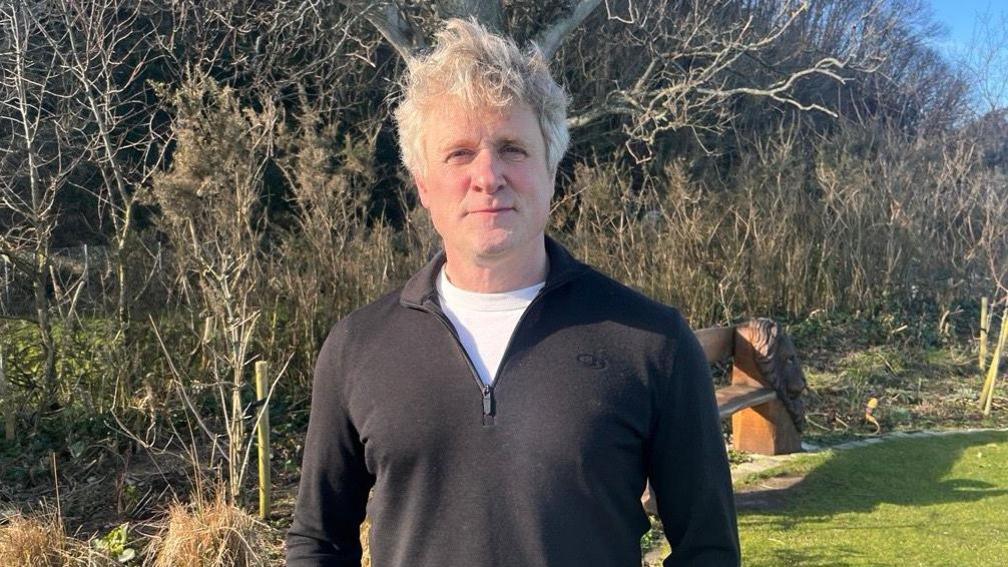Guernsey headteachers adapt to AI use in education
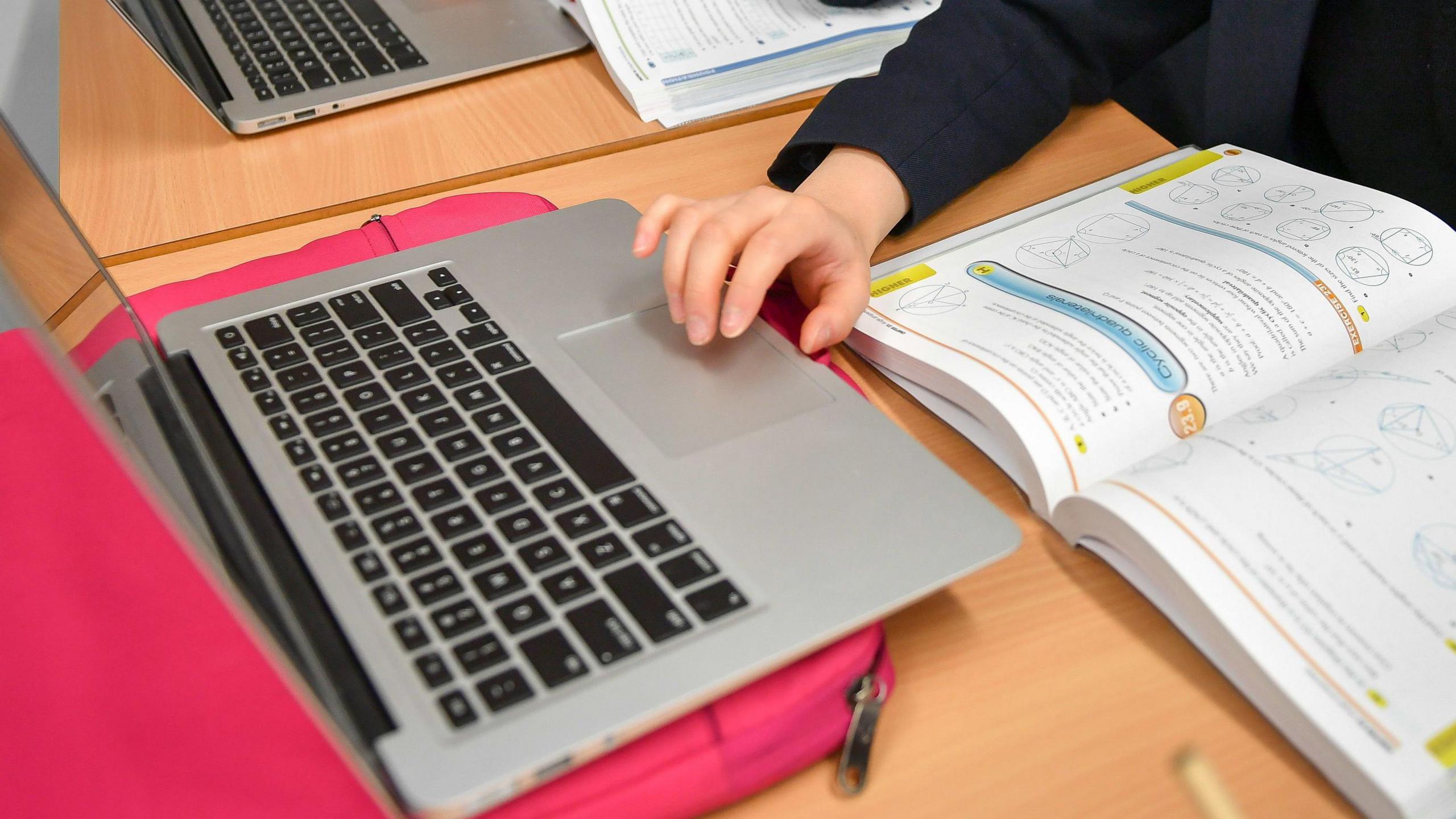
Schools on the island are coming up with different strategies for managing how students use AI technology
- Published
A Guernsey headteacher has changed the school curriculum to include Artificial Intelligence (AI) because of its potential impact on the futures of students.
Daniele Harford-Fox said The Ladies College used a custom-made AI agent to help Year 7 students set themselves targets.
She said staff also used an internal version of Microsoft Copilot with added restrictions to ensure safe learning.
"There are fundamental questions about whether [the education system] is going to still be relevant to this industrial revolution," she said.
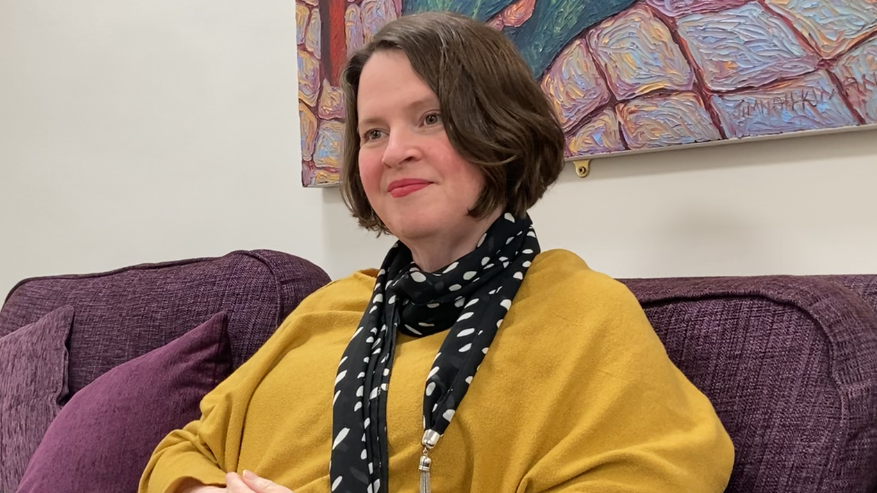
Ms Harford-Fox feels education must change to prepare students for the future
Ms Harford-Fox said recent AI models, such as Chat GPT-4, were capable of writing work better than most A-level students and Guernsey teachers were concerned about verifying their work.
She said: "If AI can write a better essay than most students, the real question is why are we spending seven years of a student's life teaching them how to write essays?"
The States does not have a specific policy which covers AI use in schools, but its online safety guidance, external refers users to Guernsey's data protection laws.
'Transferable skills'
As data protection rules are laws, and not States' guidelines, independent schools are also expected to follow them.
However, States-maintained schools are also required to follow UK AI rules from examination boards.
Kieran James, headteacher at Les Varendes, said each exam board had different rules about appropriate AI use.
As schools may use different exam boards for different subjects, this could be challenging, as the definition of acceptable AI use could alter depending on which class a student was taking, he said.
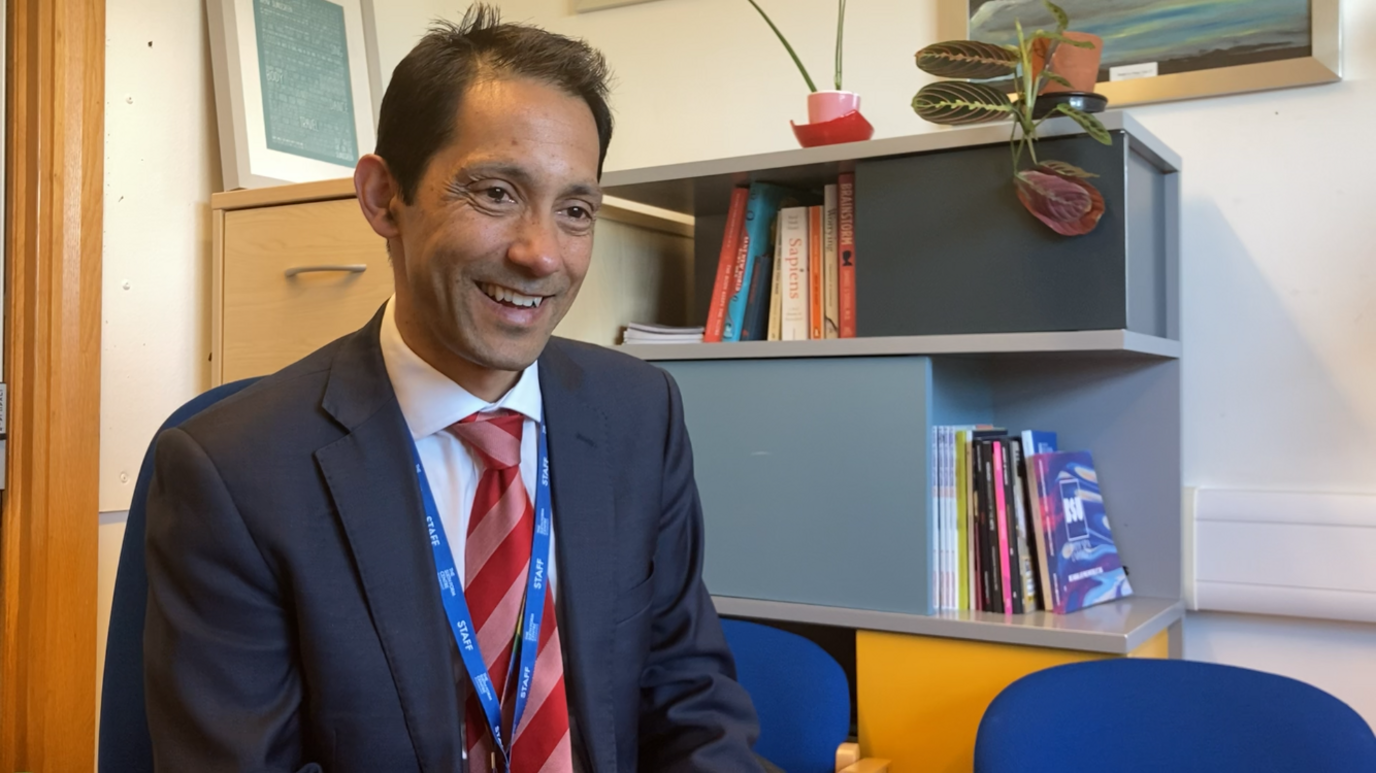
Kieran James feels education has always been about "transferable skills" so AI is not a threat
He said education gave students "transferable skills" and felt that AI was "not threatening the current system".
Mr James compared using AI to using a calculator, saying parents were originally concerned about the use of those devices, but in reality using the tool correctly still required learning.
"It's the same with AI... it's a tool and it can be used really effectively as long as it's used appropriately, and not, for example, to pass off AI's work as a student's own."
Mr James added that if used responsibly, AI had the power to support students outside the classroom when teachers were not available.
He explained students could use AI as a "personal tutor" to practise questions and mark exams.
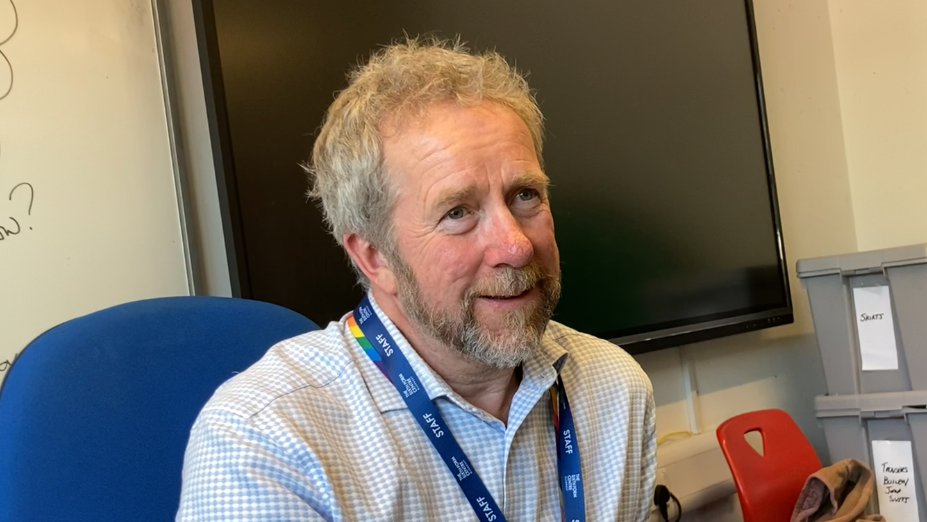
Ed Gregson feels the development of AI could threaten his future in teaching
Ed Gregson, a media teacher at Les Varandes, said he used AI to support his marking workload.
He said using AI for administrative and more repetitive tasks freed up time, and allowed him to focus on tasks that required more attention and creativity.
However, the development of AI also made him concerned about his future role in teaching.
"I'm terrified to say that I think it marks better than I do. Humans are tired... you kind of know that your personal bias is entering in to your marking," he added.

Dave Costen believes current AI is not able to compete with human teachers
Dave Costen, digital lead for Elizabeth College, said AI was not yet able to substitute for teaching.
Mr Costen said one difference was AI gave "too much [information] to students straight away" whereas teachers "develop the learning [of students] gradually".
Students generally have a poor understanding of AI, he said.
Despite this, some Elizabeth College students had experimented with the technology, he said.
One student explained to the BBC that AI was not good at adjusting the difficulty of example questions.
Another student said some of their peers over-relied on AI, and used it to complete work for them, which was not helping them learn.
AI was also better at some subjects than others, a third explained. It was very strong at coding, but in subjects that required reasoning it "really struggled".

Parent Gazz Barbe says he does not allow his children to use AI technology for schoolwork
Parent Gazz Barbe said he uses parental controls to restrict his daughter's phone use, and added that he did not allow the use of AI technology.
"I worry that if I give my daughter unrestricted access to this technology, she will use it to complete homework assignments.
"And if she does this in a subject that she really struggles with, she could easily become over-reliant on the technology," he said.
"The positive potential is absolutely massive... so long as it's used as a tool to assist teachers instead of doing the teaching," he added.
Follow BBC Guernsey on X, external and Facebook, external. Send your story ideas to channel.islands@bbc.co.uk, external.
Related topics
Related internet links
- Published20 March
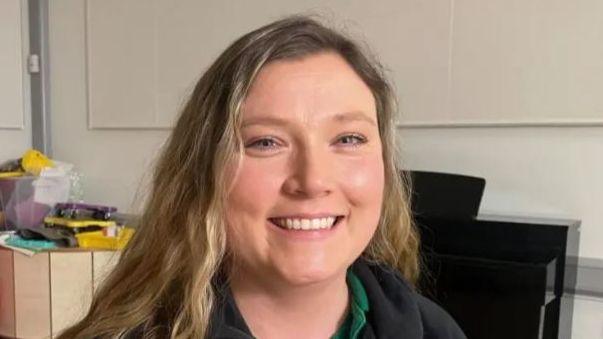
- Published1 February

- Published30 January
